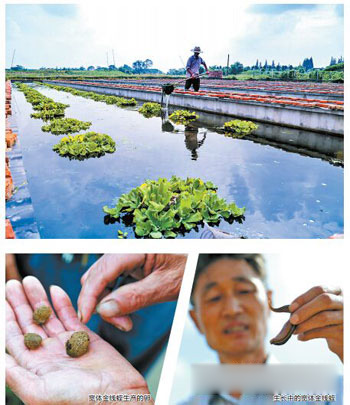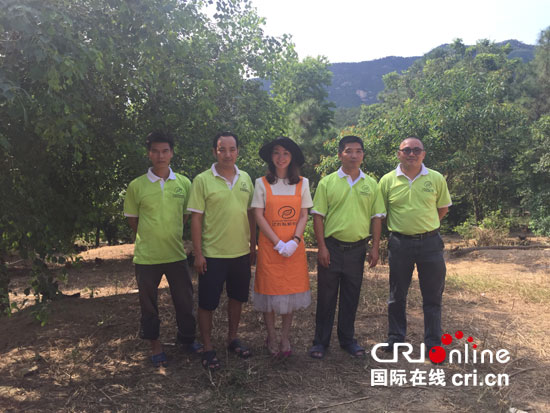Wild leeches are becoming scarce and the sea is specially raised to become rich treasures

Leeches, also known as leeches, are common in paddy fields in the south of the Yangtze River. because they like to suck human blood, when farmers work in the fields, the leg area is often an ideal target for them to attack, and they will be badly bitten if they are not careful. At this time, if you pull it directly with your hand, it is generally very difficult to pull it down, so you can only gently pat it and let it let go, but the wound is still bleeding. This kind of bug, which people hated and feared in the past, has now become a treasure in the professional cooperative of Samsung leech farming in Changshu City, Qifeng Village, Haiyu Town.
Originally, Liu Genhua, a local farmer, and three others learned that the dried products of leeches can be used in traditional Chinese medicine after being soaked, but now affected by the use of pesticides and other aspects, there are not many wild leeches, so they have become scarce products. Many people began to breed leeches. Liu Genhua and others already have rich experience in agricultural cultivation. After many previous investigations and understanding, they invested more than 700,000 yuan to set up a Samsung leech breeding professional cooperative, becoming the first farm in Changshu that specializes in artificial leech breeding. The cooperative covers an area of 15 mu and has about 20 stocking ponds, each of which is about 155 square meters. In the first half of this year, they purchased seedlings, and the breeding base was officially put into production. At present, the wide-body golden leech is a kind of species that does not suck human blood and feeds on snails, aquatic plants and so on.
Artificial breeding leeches should also follow the natural growth law of leeches and create conditions to meet the requirements of their daily life. Wang Jinlong, a technician at the breeding base, said: "Leech farming generally has two seasons a year. In spring and autumn, according to our existing conditions, we generally only raise leeches in spring. After mating, leeches in the winter begin to spawn in mid-April, and it is estimated that they can hatch in 20 to 25 days after spawning. After hatching, around June 1, they can basically be put into the pond." After careful observation at the edge of the aquaculture pond, we can find that there are some yellow puffy balls near the roots of aquatic plants in the pond. Wang Jinlong said that these are the eggs produced by wide-bodied golden leeches. At the right temperature, the small leeches will break out of the eggs and live in a special "nursery" for a period of time. When the outdoor water temperature reaches 15 degrees, they can be released into the pool. The water environment in the pond needs to be treated before stocking. The aquatic plants such as water floating lotus in the pond are used to purify the water quality and protect the direct sunlight. Root rot can also become food for small leeches.
Wang Jinlong said that on the one hand, high temperature leeches grow fast, on the other hand, the mortality rate is also high, so farms need to control the temperature and water level to prevent diseases and insect pests.
At present, the price of leeches on the market is 1100 to 1200 yuan per kilogram. The whole growing period of the wide-bodied golden leeches in the farm has been completed, and the success of trial cultivation on the first scale is in sight. But this year, the head of the cooperative, Liu Genhua, is still reluctant to sell these "treasures." He is going to let the leeches grow a little longer in preparation for spawning and breeding in the spring next year.
Related
- A course of planting techniques and methods on how to grow carrots
- How to plant the latest tulips?
- Is it better to pick tea in the morning or in the afternoon? When is the best time for tea to be picked? what is the third or fifth tea?
- Launch Yuanxiao Happy combination Haocha + Tea Yuan healthy Taste
- Penghu Tourism "Fireworks 20 Parade with You"
- 2022 West Lake Happiness holds "Digital Revitalization Voucher" and draws iphone13 and laptop.
- Banqiao Fuzhou social houses are designed to change start-up combined with police elimination to create a safe and livable environment
- The convenient measure of "mechanical weeding" in Xinbei has been abused and the Agriculture Bureau has imposed heavy penalties on the illegal land consolidation.
- Changgeng University Joins Hands with Four Memory Factories to Rescue Memory Talent Shortage
- The list of Taiwan's top 100 MVP managers is listed by the Director-General of the Farmers' Association of Sanxia District.



